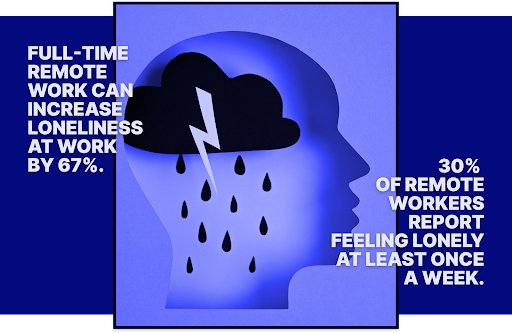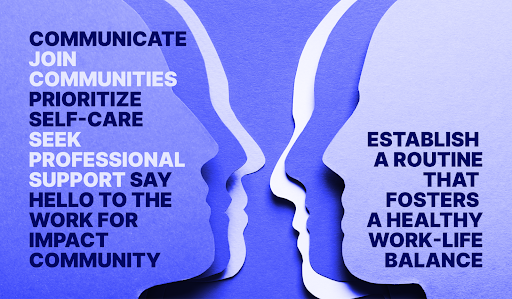A free training program for training CS reps with the skills, tools, and knowledge to delight customers and resolve issues.
Note: If you are struggling with your mental health, please consider seeking professional help. You're not alone and there is always a solution.
Although anyone can feel loneliness at work, its a particularly common problem for independent contractors who often work remotely. Out of all the skills that independent contractors need, combatting loneliness is perhaps the most vital.
This guide explores how to fight loneliness working from home and provides helpful tips for creating a more fulfilling remote work experience.

Remote work loneliness statistics
Working remotely can save you time and money, but there are also negative psychological effects of working from home. Balancing the perks and drawbacks of remote work is crucial for a healthier work experience.
Remote work loneliness statistics from recent studies highlight the importance of taking a proactive approach to addressing approach as an independent contractor. Full-time remote work can increase loneliness at work by 67%. Its no surprise, then, that 30% of remote workers report feeling lonely at least once a week.

1. Establish a routine that fosters a healthy work-life balance
Especially during times of high mental stress, routines help many people feel grounded, and establish healthy habits in daily life. Whether its committing to changing out of your pajamas every morning (no judgment here!), upholding regular fresh-air breaks throughout the working day, or using a planner to schedule your time, there are plenty of small steps you can take to build a sense of routine.
2. Communicate with friends, family & colleagues
Did you know that just one conversation with a friend a day can help you feel better and reduce your negative emotions?
Although its hard to beat face-to-face communication, there are still plenty of well-being benefits to be gained from communicating with people over social media, email, and especially video.
You could organize catch-ups with family, set up virtual co-working sessions with your remote work friends, and make an effort to schedule more collaborative time with the people you work with.
3. Join communities
Connect with like-minded individuals and communities to learn, grow, and add value to your remote work experience. This could be through volunteering, hobbies, or professional groups.
The Work for Impact Community is a great place to start. Buzzing with the thousands of remote workers using our platform, you can share your best work (or ask for feedback!), exchange insights in Weekly Questions, and ask for help in Shoulder Friend. Shoulder Friends the place for people looking to navigate the ups and downs of remote work no one should suffer or celebrate in silence!
4. Prioritize self-care
When there are deadlines hitting and personal errands to run, being kind to yourself can fall to the last item on your to-do list. However, research shows that how we feel affects our productivity in fact, one study even found that a one-point increase in self-reported happiness led to around a 12% increase in productivity.
The connection between mental health and productivity is just one more reason to focus on well-being. As well as the basics getting eight hours of sleep, doing regular exercise, and eating a healthy diet make time to relax by watching movies, meditating, or learning new hobbies.
5. Seek professional support
If youre struggling with your mental health, its important to seek professional help. Professional support can come in various forms, including psychologists, psychiatrists, counselors, or therapists. They provide a safe space to explore your negative emotions, develop coping strategies, and receive treatments like therapy or medication if needed.
Don't hesitate to reach out to local mental health services, helplines, or online resources for guidance on finding the right support. In many countries, healthcare providers can offer referrals.
Combat remote work loneliness in the Work for Impact Community
If you ever feel overwhelmed by loneliness while working remotely, the Work for Impact Community is here to support you and add an element of fun.



